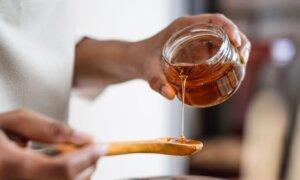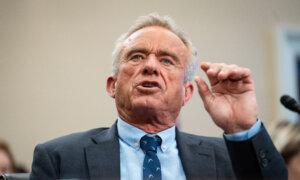The American Beverage Association argues against such bans, saying they restrict ‘beverage choice.’
This is the first-ever state waiver banning soda and energy drinks from SNAP, popularly known as food stamps.
“Prior to this waiver, SNAP recipients could buy anything except alcohol, tobacco, hot foods, and personal care products,” said the statement.
The waiver, which takes effect on Jan. 1, 2026, is part of the Trump administration’s Make America Healthy Again agenda, the USDA said, adding that this “historic action seeks to reverse alarming disease trends across the country.”
One in three children between the ages of 12 and 19 is affected by prediabetes, it said. Forty percent of school-aged children and adolescents suffer from at least one chronic condition, while 15 percent of students in high school drink a minimum of one soda per day.
The waiver issued to Nebraska “is the first of its kind, and it is a historic step to Make America Healthy Again,” Rollins said. “Under President Trump’s leadership, I have encouraged states to serve as the ‘laboratories of innovation.’”
“Millions of Americans rely on the Supplemental Nutrition Assistance Program (SNAP) to help feed their families. They deserve the same freedom to choose the foods and beverages that best fit their needs,” it said.
Obesity Driver?
In February, Rollins had raised concerns about the inclusion of sugary drinks in the SNAP program.
“When a taxpayer is putting money into SNAP, are we OK with us using their tax dollars to feed really bad food and sugary drinks to children who perhaps need something more nutritious?” she told reporters at the White House on Feb. 14.
The Centers for Disease Control and Prevention says the obesity rate in the United States was 40.3 percent during the 2021–2023 period. Health researchers have long blamed sugary drinks for obesity as well as health issues such as cardiovascular disease and Type 2 diabetes.
The American Beverage Association rejects such claims, saying beverages cannot be blamed for driving up obesity.
“While CDC data shows adult obesity is up 37.4 percent since 2000, full-calorie soda sales are down 22.9 percent and beverage calories per serving are down 42 percent,” it said.
“If the two were connected, obesity rates should have decreased with the decline in soda consumption.
“In fact, calories from sugar-sweetened beverages are a small part of the American diet. When consumption of all sugar-sweetened beverages are combined, they account for less than 6 percent of calories in the American diet.”
“As an organization that has opposed Big Soda for decades, we have worked tirelessly to pass public policies that effectively reduce consumption of sugary drinks,” said Nancy Brown, CEO of the association.
Original News Source Link – Epoch Times
Running For Office? Conservative Campaign Consulting – Election Day Strategies!


